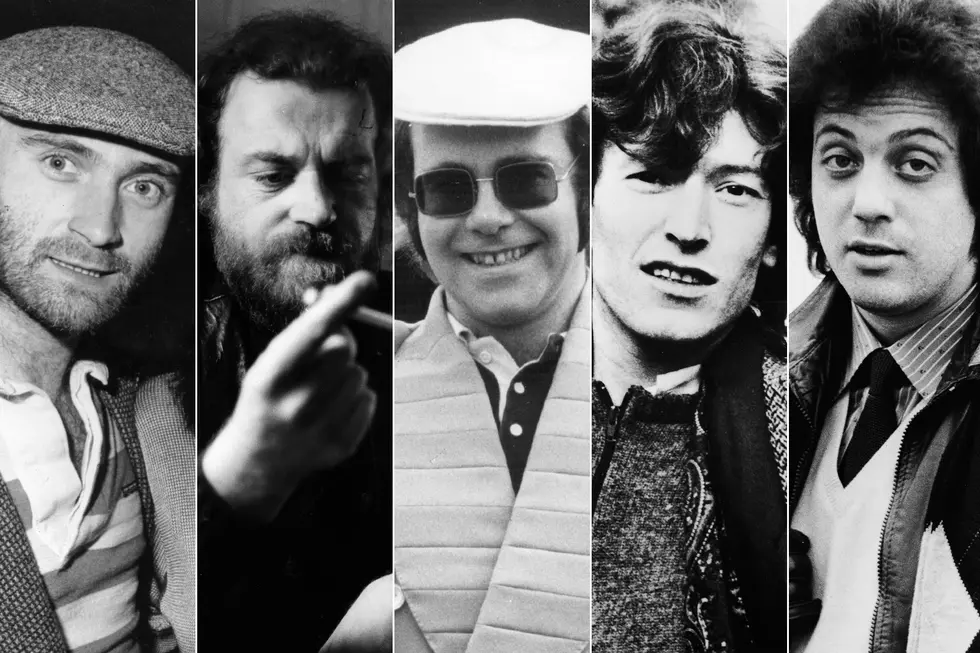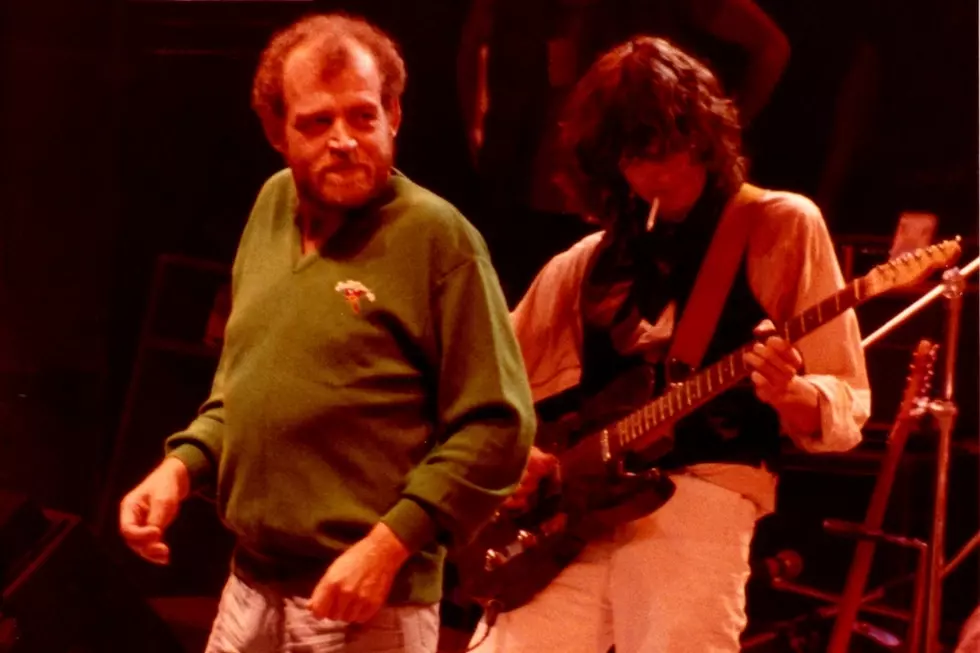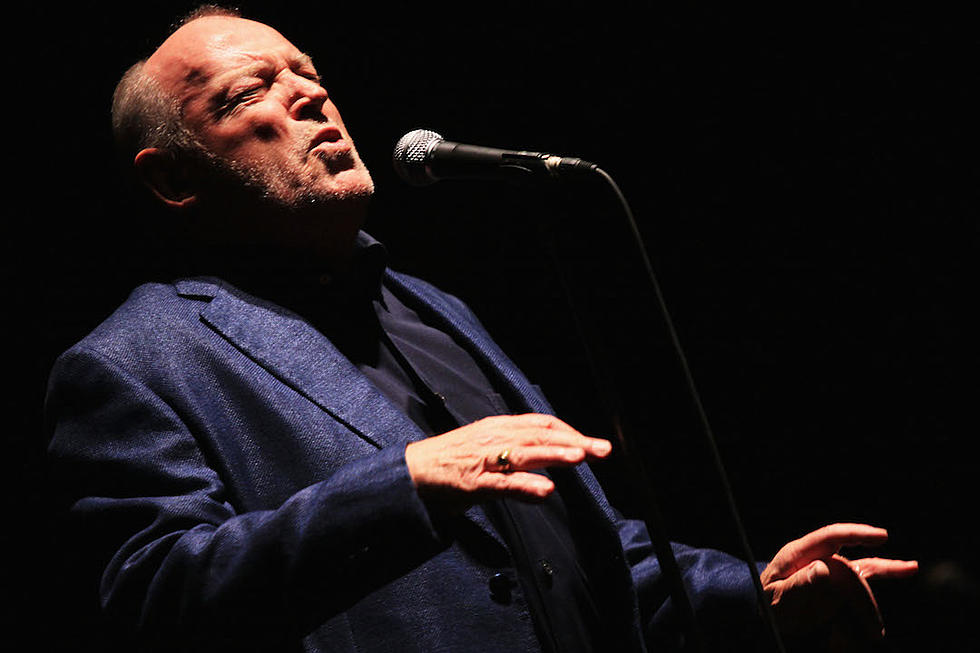
How Joe Cocker Corralled Everybody for ‘Mad Dogs & Englishmen’
Joe Cocker's triumphant set at Woodstock brought his distinctive vocals and peerless interpretive talent to thousands of new fans. But by the end of 1969, he was a singer in search of a band — and staring down a long list of touring commitments.
As tended to be the case in his early career, things didn't come together easily for Cocker following his Woodstock appearance, which prefaced the release of Joe Cocker! later in the year. Although that LP was a hit, disagreements with the members of his Grease Band left him without backing musicians for an upcoming U.S. tour — and when he couldn't back out of those dates, he had to put together a new group in a hurry.
Enter pianist Leon Russell, whose song "Delta Lady" was covered on the Joe Cocker! LP. Russell, already a wizened studio vet despite being only in his late 20s, had performed with Delaney and Bonnie and Friends, and when Cocker reached out to ask him to put together a band for the looming American tour, Russell turned to many of his former bandmates in that short-lived, highly regarded combo.
"Leon Russell was the ringmaster," singer Rita Coolidge told the Long Island Pulse. "He pulled the whole circus together. Joe Cocker needed a band for his tour and movie. Joe called Leon. Leon called me and said, ‘Put a choir together.’ We only had four days to rehearse. There were no rules anytime."
That rushed approach helped contribute to the band's legendarily unwieldy lineup, which boasted more than 20 singers and musicians — a gaggle of players whose combined efforts beefed up Cocker's sound while perpetually seeming to teeter on the edge of chaos, only to be reined in by Leon Russell. As crowded as the stage eventually became, the personnel Cocker ended up taking out on the road represented a slimmed-down version of the crew Russell initially assembled.
"Mad Dogs & Englishmen came about because Joe had this tour of America already booked. And then the Grease Band split and he didn't have a band. He tried to cancel, but there were lots of complications, so he decided to fulfill his engagements with a new band," Russell told Record Mirror. "Mad Dogs is a 10-piece band with a 10-piece choir and some other people. It was up to about 45 people at one time, and now it's down a few."
Listen to Joe Cocker Perform 'The Letter'
Sensing the tour needed to be documented, execs at A&M Records bankrolled a concert recording and live documentary, both later released under the title Mad Dogs & Englishmen, taken from the 1931 Noël Coward song that Russell later recorded for his own Leon Russell and the Shelter People album in 1971. The album, recorded in late March 1970 during a pair of dates at the Fillmore East in New York, arrived in August 1970; the film, taped at the Metropol in Berlin on Oct. 31, debuted in the spring of 1971.
By the time anyone got to see or hear either of those projects, however, the band had already fallen apart. Cocker, who'd already been reluctant to tour even before the dates were underway, clashed with Russell on the road while battling depression and a growing alcohol dependence; after the tour ended, he entered a period of self-imposed exile, returning to England while slowly contemplating his next move.
"The album almost didn't happen," A&M co-founder Jerry Moss told Rolling Stone. "The tour was so taxing, I didn't see Joe for a couple years, and he was nowhere to be found."
The label ultimately turned to producer Glyn Johns to make sense of the Mad Dogs tapes, and by the time he was finished mixing the record (which was co-produced by Russell and Denny Cordell), Moss knew they had a hit even if he couldn't find Cocker — and his instincts were proven right with Cocker's rendition of the Box Tops hit "The Letter," which cracked the Top 10 and helped the album on its way to over a million in sales.
"'The Letter' was the first hit for Joe, and provided a tremendous glimpse of his amazing musical force. The record went platinum, and sold well; it also showed this incredible menagerie of musicians, like Leon Russell," recalled Moss. "That whole group was incredible, and it was an amazing experience – what they did live and on record was magnificent. After that success, we were able to get Joe back in the studio to make more great records."
As Moss admitted, getting Cocker back into the studio wasn't necessarily as simple as making a few phone calls. And although he'd go on to record many more albums, he'd clearly lost a lot of momentum by the time he returned with his next effort, Joe Cocker, in late 1972. He still had plenty of hits in his future, but his chart successes would prove fleeting and sporadic over the ensuing decades — which is understandable, given the uphill battles he'd continue to face on a personal level.
"I was about 26 years old, and I kind of felt indestructible," Cocker admitted during a 2012 interview with NPR. "By the early '70s, the drugs and the booze took their toll. ... It was a long road back. A lot of times when you're young and carefree, you don't realize, when you tip over the edge, how difficult it is to climb back in."
Listen to Joe Cocker Perform 'With a Little Help From My Friends'
Given the pain and confusion that surrounded the Mad Dogs and Englishmen tour for Cocker, his feelings for the music that came out of it were always colored by a mixture of resentment, sadness, and ambivalence — and although he had to be glad for the sales and critical acclaim, he steadfastly refused to contemplate the idea of a reunion.
"It's weird because people are always coming up with that. You've got to look at the past, and how many people have either died who were on that tour or are just incapacitated? It's not like the Eagles getting back together. You'd be trying to put something together that was a feeling, and an event," Cocker told Billboard years later.
"The reason that tour broke up was I fell out with Leon and we all ended up very unhappy," Cocker added, "so it's not like you're putting together some happy memories. I mean, why should I, at this stage of my life, want to go back into something that made me unhappy. I'm quite happy with my own band, but I know [the reunion idea] is something that won't go away."
That proved a more accurate prediction than perhaps even Cocker himself might have guessed. In 2015, several months after Cocker's passing at the age of 70, guitarist Derek Trucks hit upon the idea of staging a Mad Dogs & Englishmen reunion with the surviving members of the band, scheduled for Sept. 11 at the Lock'n Festival in Virginia.
"It's going to be a blast," Trucks later told UCR. "It’s going to be a big beautiful mess on that stage! I’m pretty pumped about it. You know, Leon Russell will be there, Rita Coolidge, Claudia Lennear, Dave Mason and then about six of the original background singers. It’s going to be a trip."
For Russell, the show represented a way of honoring the past without truly hoping to recapture it. "I've been approached by people in the past who said, 'Let's do Mad Dogs & Englishmen again, and we'll get these guys and that guys," but you have to remember that all the people in the [original] band were unknown at the time. It didn't have stars," he told Rolling Stone. "So I didn't think it could be recreated that way. But I quite like this band, and it'll be interesting."
Rock's Most Disappointing Albums
More From Ultimate Classic Rock









